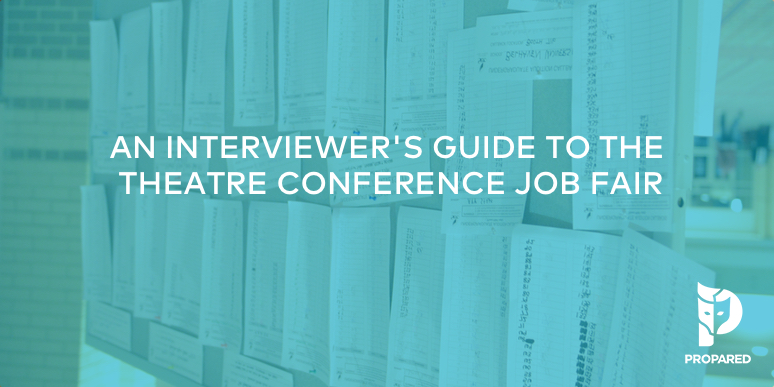Almost everyone reading this sentence has been a Freelancer.
Yes, even you. You know who you are.
Wait. What?
Freelancer is a term that is more inclusive than exclusive. The teenager who cuts grass on the weekends for extra cash? Freelancer. The police officer who offers home security consultations when he’s off-duty? Freelancer. The hotshot loose-cannon blogger, ghostwriting a blog for a major corporation? Definitely a Freelancer.
It’s no secret that freelancing is on the rise. MBO Partners is a firm specializing in helping Independent Consultants work with their clients. They recently released a study detailing our changing workforce, and found some interesting facts. Here are some highlights:
- 17.7M people identify as “Independent Workers”
- These IWs generated over $1.7 trillion in income (up 20% over previous year)
- 1-in-4 hires other IWs/Freelancers
Those are some powerful figures. They suggest an exponential increase in the number & economic influence of the self-employed. But what precipitated this rapid rise in an evolved workforce? Let’s have a bit of history, shall we?
Back In The Day…
Before Industrialization, earning a living was a wholly different experience than it is today. People developed skills that were marketable to the needs of their immediate environment. They served, typically, their friends & neighbors. Occupations such as a shoemaker, tailor, fishmonger, doctor, grocer etc, served the practical necessities of their very “local” world. Even these “careers” were relatively new; consider that most people in pre-Industrial America were still farmers.
The concept of a Freelancer as a distinctly identifiable career path is a 20th century concept, to be sure. It evolved along with the industrialization of America, and the resulting rise of corporate culture. People got used to working for someone else, in bigger cities, for organizations much larger than the family farm or clerking office. To do this, they became more educated, and (crucially) more specialized.
Specialization is the key concept here. As technology advanced, the need for more a more specialized workforce arose. No longer were you simply an “engineer”. Now, careers centered around one aspect of engineering became necessary. This required an evolution in the way we were educated. Teachers split into sub-groups, each specializing in one aspect of the discipline. Those groups then became even more specialized; people began to study uber-specific disciplines, and devoted all or much of their time to doing so.
The Barbarism of Specialization
 While this may seem like a logical & helpful progression, some side effects became apparent in our culture. Social philosopher Jose Ortega y Gasset popularized the phrase “The Barbarism of Specialization” in his 1930 treatise on modern man, The Revolt of the Masses. In it, he notes that:
While this may seem like a logical & helpful progression, some side effects became apparent in our culture. Social philosopher Jose Ortega y Gasset popularized the phrase “The Barbarism of Specialization” in his 1930 treatise on modern man, The Revolt of the Masses. In it, he notes that:
“For, previously, men could be divided simply into the learned and the ignorant…But your specialist cannot be brought in under either of these two categories. He is not learned, for he is formally ignorant of all that does not enter into his specialty; but neither is he ignorant, because he is a ‘scientist’, and ‘knows’ very well his own tiny portion of the universe.” {emphasis added}
What Ortega observed is that, through this hyper-specialization, man became disconnected from those parts of culture that didn’t immediately pertain to his specialized occupation. It may have worked just fine for a while, but the cracks were beginning to show as the 20th century progressed.
The most obvious problem arises when a specialist loses his or her job, or that job becomes obsolete through technological and/or sociopolitical & economic changes. The need to continue to “be relevant” in one’s field became critical. The pressure to “publish or perish”, permeates all in the upper echelons of the academic world. The need to adapt quickly has become a survival strategy, and not one for which all were prepared.
But there’s another downside to specialization, and it’s a cultural one. Ortega hints at this idea throughout his work, at the element of intellectual segregation that would serve to divide us as a nation. We see it expressed across multiple cultural institutions, the disdain for the “scientist”, for intellectualism as a whole. Has this over-specialization caused us to lose touch with each other? Has it made the traditional workplace an environment so toxic, that millions of Americans are seeking to develop careers as Freelancers?
This Modern Age
Fast-forward to today’s Digital Age. Technology is changing & evolving much faster than most can handle. Simply being great at one task or set of skills just doesn’t cut it anymore. Furthermore, larger organizations & businesses can’t offer the same security they did for Baby Boomers, or even most Gen-X’ers. What’s a person to do to stay gainfully employed, fed, clothed, and housed?
The answer, it seems, has found its expression in the Rise of the Freelancer, especially in the Creative Class of occupations. This is possible for several reasons.
Small Business Labs, an Emergent Research partner, covers trends in small business. They recently published an article detailing some of these trends, forecasting for 2014. Some of the trends are clear boons to the Freelancer, empowering Independent Workers everywhere. The technological trends & advances noted include:
- The Convergence of Mobile, Cloud, Data and Analytics
- A Widening of the Small Business Digital Divide
- The Increasing Ability, by Everyone, to Produce High-Quality A/V Content
It’s become easier for individuals to work collectively. With a phone, tablet, and PC, one person can contribute to a much larger project, in real-time. This is a massive leap in productivity & workflow ability. It’s putting the power in the hands of the individual, and that is a very attractive concept for young & old alike.
The following graphic, produced by Jess3 & 24seventalent, respectively, outlines the attitudes of today’s Freelancer:
Sticking Together
Working solo has its benefits, but most Freelancers will tell you that you need to be able to reach out to others to really succeed. Organizations like the Freelancers Union promote this concept, which they call New Mutualism.
New Mutualism focuses on this idea of individuals operating collectively, without losing that sense of individual empowerment. Understanding that, as a Freelancer, you are not alone, is critically important. Deadlines, increasing workloads, and cranky clients can affect our work negatively. Asking for help from a fellow Freelancer is often the solution.
Freelancers Union also helps individuals find health insurance solutions, plan for retirement, and get involved in their community. They provide insight into how to get paid the right amount for the work we do, and keep Freelancers in the loop on the changing economic landscape.
The Propared team works with many talented people who identify as Freelancers. It’s a way to work that works for us, and we believe that many hands truly does make a light load. Stay tuned for updates on how we plan to empower Freelancers in the live event industry.





